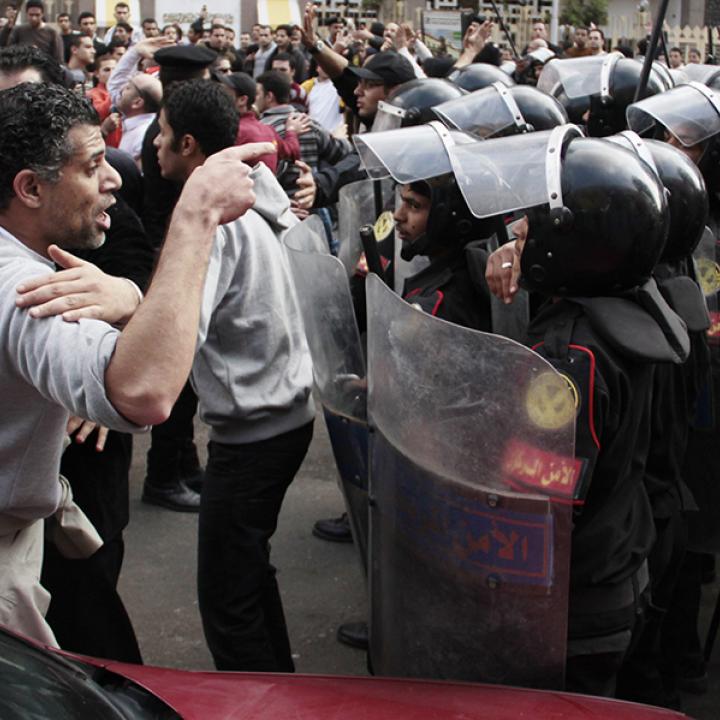

Our support of Cairo's military junta now looks like a deeply misplaced bet.
The dissolution of Egypt's parliament yesterday, by a ruling of its Supreme Constitutional Court, was neither an arbitrary event nor a surprising one. Instead, it was the product of fault lines that had been shifting ever since demonstrators took to Tahrir Square.
When those protests ousted longtime dictator Hosni Mubarak from power last February, a council of generals took charge and vowed to steer the country toward a more democratic future.
It was an arrangement with which Washington was quite comfortable, and for good reason: the American-Egyptian military relationship has been the lynchpin of bilateral relations for nearly three decades, and many in Washington believed that the Egyptian military could provide stability for a country experiencing unprecedented turmoil.
Today, that faith in the military looks like a perilous wager.
Of all the constraints Egypt has faced in forging a stable democratic future, none has been greater than the ruling military council itself.
At practically every juncture, the generals have made the wrong decision, accruing a record of mismanagement.
As a result, the time has come to withhold the $1.3 billion in annual military aid to Egypt until the junta refocuses its attention away from political maneuvering and toward the more mundane task of securing Egypt's borders.
The political crisis that exploded yesterday was set in motion last March. Eager to remove itself from day-to-day governance of the country, the military junta decided to hold parliamentary elections before drafting a new constitution. This would allow it to devolve power to an elected civilian government that, in lieu of a constitution, would be unable to assert itself over Egypt's historically autonomous military.
When this plan was approved by popular referendum, the junta proceeded to draft Egypt's political rules on the fly. In October, the junta issued a complicated parliamentary elections law under which one third of the Egyptian parliament would be reserved for political independents.
Egyptian political parties rejected this stipulation, and demanded that their candidates be permitted to run for all parliamentary seats. Under pressure, the junta relented -- but it did not change the law accordingly. As a result, 166 of Egypt's 498 parliamentary members were elected illegally.
Yesterday's ruling by the Supreme Constitutional Court to dissolve parliament is thus on solid legal ground. But it is dangerous nonetheless. For starters, the decision wipes out the gains of the Muslim Brotherhood, which won a 47%-seat plurality in the parliament and remains Egypt's best-mobilized societal force.
While the Brotherhood has signaled its acceptance of the court's decision, there is good reason to believe that the Islamists' cool-headedness might not last beyond this weekend's presidential election. After all, that election pits Brotherhood candidate Mohamed Morsi against Ahmed Shafik, who served as Mubarak's last prime minister -- and the Brotherhood has indicated since April that it will take to the streets if an official from the former Mubarak regime is elected. As a result, the junta's own status might be in jeopardy.
The junta's actions have also damaged the legitimacy of the very political institutions on which Egyptians will rely if they hope to achieve democracy.
Though legally sound, the Supreme Constitutional Court's decision to dissolve parliament has damaged its credibility, because many Egyptians view the ruling as political. And without a constitution, the powers of Egypt's next president remain undefined.
Even if new parliamentary elections are held in the near future, Egyptians are unlikely to have faith in an institution that can be disbanded so suddenly.
While Washington can do little to solve Egypt's domestic morass, there is no excuse for our underwriting a military regime that is exacerbating its country's instability. As a result of the junta's actions, Egypt will remain a mess for a long while. Why bet taxpayer money on a proven loser?
New York Daily News

